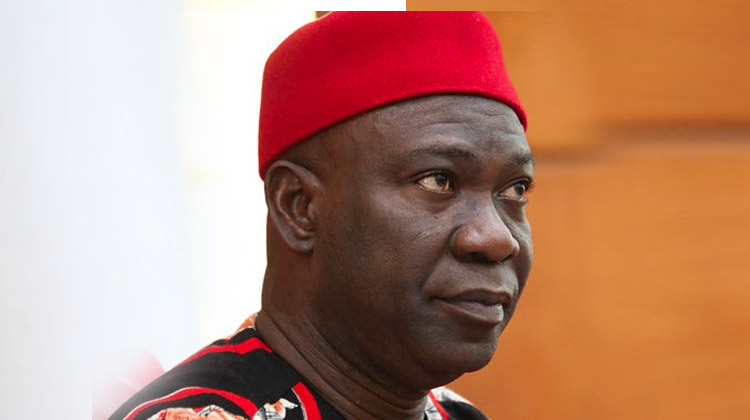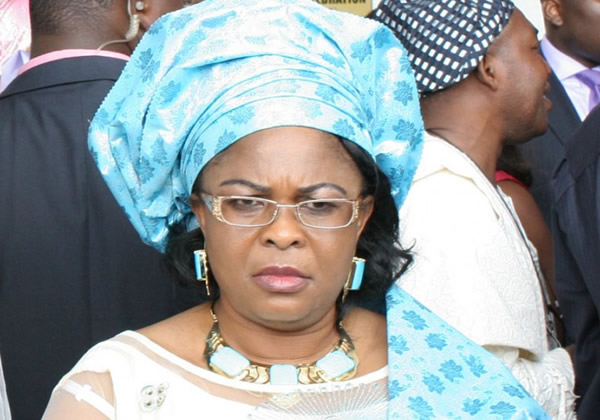A federal high court sitting in Abuja has stroked out an interim order of forfeiture filed by the Economic and Financial Crime Commission, (EFCC), on properties belonging to the former deputy senate president, Ike Ekweremadu.
Justice Inyang Ekwo, presiding on the case on Friday, stated that EFCC concealed facts when it applied for an interim forfeiture of the assets, stating that the application for forfeiture was not brought in good faith and ought to be struck out.
According to Inyang Ekwo, he said that; “I do not think that the desired objective of the legislature in enacting the provision of Section 17 of the Advance Fee Fraud and Other Related Offences Act (AFFOROA), 2006 relied upon by the respondent (EFCC) in initiating the proceeding to obtain an ex-parte order of interim forfeiture order was for the provision to be used in any circumstance where the person affected is not in a position to defend himself or show cause as required.
“I do not think that this position is correct. The requirement to file affidavit to show cause pursuant to S. 17 of the AFFOROA, 2006 will hold strong in a normal situation where the person required to do so is not fettered by any act, condition or situation that amounts to a deprivation of the right to show cause as required by law.
“In this case, the respondent (EFCC) wrote Exhibit SIE 2 (a letter) to the Crown Prosecution Service in the United Kingdom which letter was used as evidence to deny Senator Ike Ekweremadu bail in the criminal proceedings.
“At the same time, the respondent filed ex-parte application for interim forfeiture which upon order being made thereon required Senator Ike Ekweremadu and his wife to show cause in Nigeria why an order for final forfeiture ought not to be made.
“I have been asking myself the question repeatedly: How can a citizen of Nigeria who is incarcerated outside the country to the knowledge of the respondent, be expected to show cause in an action in Nigeria brought by the respondent?
“In other words, how do you help to tie down a man and initiate a fight and demand that the same man you have helped to tie down must defend himself?
“This in my opinion, is an unconscionable act. The act of the respondent clearly shows that this action was brought in bad faith.
“In law, bad faith entails dishonesty of belief or purpose. On the whole, I find that the application for forfeiture, going by the facts of this case has not been brought in good faith and ought to be struck out.
“Once more, this court needs to apply the test of reasonableness of the act of the respondent in initiating the proceeding leading to the interim forfeiture order. I have done so and found this applicant ex-parte wanting in that respect.
“Consequently, I make the following orders:
“An order is hereby made setting aside the interim forfeiture order of the properties of Senator Ike Ekweremadu and his companies made by this court on 4th day of November, 2022, upon the ex-parte Originating Motion filed by the Economic and Finance Crimes Commission (EFCC) on 27 July, 2022.
” The entire proceeding initiated by the respondent is hereby set aside.”

